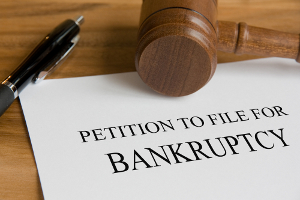 Once a debtor files bankruptcy they have to be very careful about disposing of their property. Upon filing a bankruptcy petition, all property owned by the filer becomes part of a bankruptcy estate. Debtors can exempt property from the estate by selecting the exemptions available to them in the state in which they live. These exemptions protect the value of property from the estate, meaning that the property continues to be owned by the debtor instead of being transferred to the bankruptcy estate.
Once a debtor files bankruptcy they have to be very careful about disposing of their property. Upon filing a bankruptcy petition, all property owned by the filer becomes part of a bankruptcy estate. Debtors can exempt property from the estate by selecting the exemptions available to them in the state in which they live. These exemptions protect the value of property from the estate, meaning that the property continues to be owned by the debtor instead of being transferred to the bankruptcy estate.
However, simply exempting property does not give the debtor the right to dispose of their property. The trustee and other parties in interest can object to exemptions if they believe that the exemption does not protect the property or if they believe the property has been undervalued. Debtors should not dispose of any exempt property until after the deadline to object to exemptions has passed.
Debtors should wait even longer to sell or give away nonexempt property. In Chapter 7 cases nonexempt property belongs to the bankruptcy estate. The trustee can liquidate the property and disburse the proceeds to the creditors. If the trustee believes that the cost of administering the estate outweighs the benefit to the creditors, then she may abandon interest in the nonexempt property. If that happens then the debtor is free to dispose of the property.
In Chapter 13 cases filed in the Eastern District of Texas, nonexempt property remains part of the bankruptcy estate until after confirmation has been granted, at which time the property vests back with the debtor. If a debtor wishes to sell, transfer, or otherwise dispose of nonexempt property prior to confirmation of the plan, he must file a motion to sell the property and get court approval. The trustee will want the proceeds of the sale to be paid to the bankruptcy estate so that the unsecured creditors receive payment.